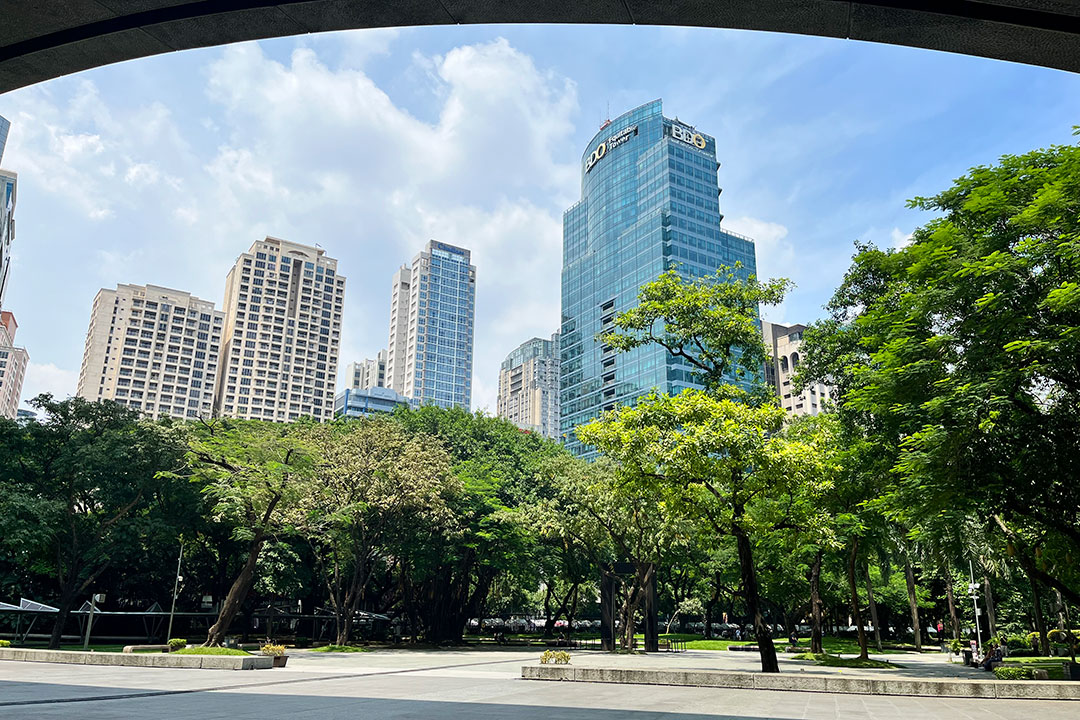Elevated office vacancy rates to persist — report

OFFICE VACANCY in Grade A and prime offices in Metro Manila remained high in the third quarter as companies continued to implement hybrid and remote work schemes, according to real estate services firm Cushman & Wakefield.
In a statement on Wednesday, Cushman & Wakefield said office vacancies in Metro Manila rose by 72 basis points (bps) to 16.83% by the end of the July-to-September period from 16.12% in third quarter a year ago.
It noted the office market is in a “slow recovery” as remote work schemes remain prevalent among local information technology and business process management (IT-BPM) companies.
Quarter on quarter, the Metro Manila office vacancy rate was down 6 bps from 16.9% in the second quarter.
“Despite having positive absorption figures of roughly 38,000 square meters (sq.m.) in the quarter, the marginal (quarter-on-quarter) adjustment of vacancies can be attributed to the continued return of office by some occupiers in the city,” Tetet Castro, director and head of tenant advisory group at Cushman & Wakefield, said.
The positive absorption figure is attributed to some companies relocating or consolidating their office spaces in a single location.
Amid the high vacancy rates, landlords have delayed rent increases.
Ms. Castro noted average asking rents to have only gone up by 0.15% year on year to P1,042.17 per sq.m. per month as of the end of the third quarter.
“While some landlords have adjusted their rents in some of their developments, majority are still keeping it steady while noting that their rents are still negotiable,” she said.
Businesses and companies vacated office spaces during the pandemic as the strict lockdowns forced them to implement remote work arrangements. However, some companies continue to adopt hybrid and remote work schemes despite the return to normalcy.
Claro dG. Cordero, Jr., Cushman and Wakefield director and head of research said, vacancy rates are expected to remain high.
“The current structural shift in office space occupation sweeping the global market has also been manifested (despite the relatively higher return-to-office ratio) in the local market, particularly in major CBDs (central business districts). Elevated vacancy rates are likely to persist, as global corporate occupiers brace for hybrid work arrangements and a new legislation is underway that will allow local IT-BPM companies to implement remote work schemes,” he said.
The House Ways and Means Committee is currently deliberating on the CREATE MORE bill, which includes a provision allowing IT-BPM firms to implement remote work schemes while retaining tax incentives. The bill, which aims to amend the Corporate Recovery and Tax Incentives for Enterprises (CREATE) law, is expected to be passed this week.
Currently, IT-BPM companies are allowed to implement remote work and retain tax perks if they register with the Board of Investments.
Mr. Cordero noted that headline rents of prime developments in major CBDs are still stable, while other developments in the decentralized districts have moderately declined “due to availability of office spaces from new completion and from the spaces which have remained vacant after the flight of Philippine offshore gaming operations (POGO) companies.”
Meanwhile, Mr. Cordero said the recovery of the office market could take on “a divergent trend” after the pandemic.
“As large corporate occupiers chart their respective long-term real estate strategies, high-quality developments will be on high demand as future occupancy requirements entail highly flexible building systems, lighting, design and space re-design flexibility, access to public transportation and set of amenities to suit the occupiers’ wants and the hybrid work schemes,” Mr. Cordero said.
He noted this would put pressure on low-quality buildings, “especially those which cannot match the future market demands for office space occupancy,” he added.
Mr. Cordero noted that elevated inflation and high interest, along with geopolitical conflicts, may create more market jitters and dampen the market’s recovery.
“Lingering prospects of slower economic growth and the high-interest rate environment challenge the expansion of the Philippine REIT (real estate investment trust) market. The onset of a hybrid work scheme, early exit of POGO companies, and ongoing office space rationalization of corporate occupiers generally weigh on expectations of the future growth of office space demand,” he added. — Revin Mikhael D. Ochave



